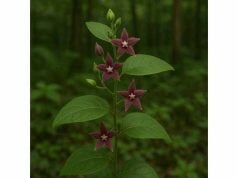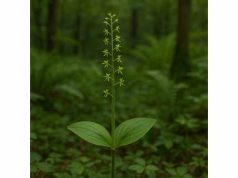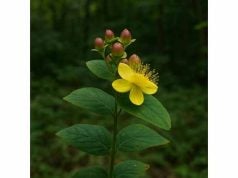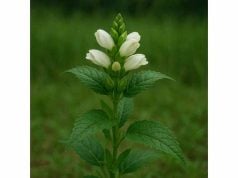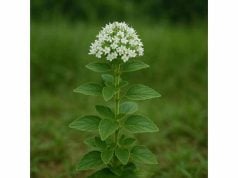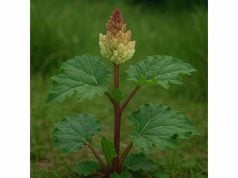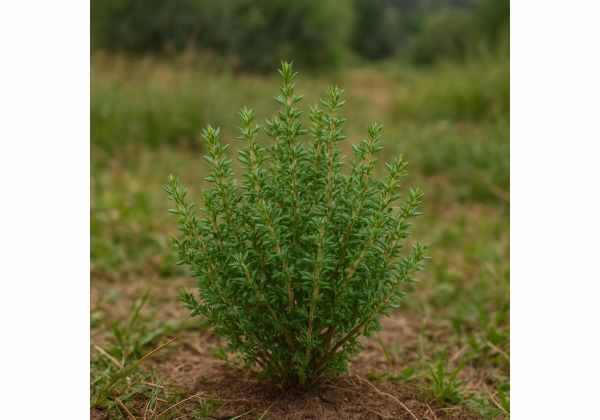
Thyme, scientifically known as Thymus vulgaris, is an aromatic herb widely cherished for its robust flavor and extensive medicinal properties. Renowned for its strong antimicrobial, antioxidant, and anti-inflammatory effects, thyme is a cornerstone of traditional herbal medicine and culinary practice. Rich in bioactive compounds such as thymol, carvacrol, flavonoids, and essential oils, thyme supports respiratory health, boosts immune function, and aids in digestion. Its versatility makes it an invaluable addition to both everyday cooking and natural therapeutic applications, merging ancient botanical wisdom with modern scientific research to promote overall well‐being.
Table of Contents
- Botanical Overview and Identification
- Phytochemical Profile and Active Compounds
- Holistic Health Benefits and Core Qualities
- Applications and Usage Safety
- Research Insights and Key Findings
- Frequently Asked Questions
Botanical Overview and Identification
Thyme is a low-growing, woody herb belonging to the Lamiaceae (mint) family. Thymus vulgaris is its most common species, though there are many varieties and subspecies grown for their unique flavors and medicinal properties. This perennial herb is characterized by its small, oval leaves, which are typically green with grayish hues, and its tiny, tubular flowers that appear in clusters during the summer months. The plant’s scent, a complex mix of earthy, herbaceous, and slightly minty aromas, is due in large part to its rich essential oil content.
Botanically, thyme thrives in sunny locations with well-drained soil and is adapted to thrive in Mediterranean climates. It is native to the Mediterranean basin but has been naturalized in many parts of the world due to its culinary and medicinal value. Its growth habit is prostrate or ascending, forming dense mats that spread along the ground. This makes thyme not only an excellent culinary herb but also an ideal ground cover in dry, sandy soils.
The taxonomy of thyme is well-established; it is classified in the genus Thymus within the family Lamiaceae. The leaves are opposite and contain numerous oil glands, which release the volatile compounds responsible for thyme’s signature aroma and flavor. Its flowers are usually pale pink, white, or lavender, arranged in small clusters at the tip of the stems. These features make thyme easily recognizable and distinguish it from other herbs in the mint family.
In its natural habitat, thyme is commonly found growing wild in rocky, well-drained soils in sunny, open areas such as hilltops, scrublands, and coastal regions. Its ability to thrive in poor soil conditions and withstand drought is a testament to its hardy nature. Cultivated varieties have been selectively bred for enhanced flavor, aroma, and medicinal potency, ensuring that thyme remains a popular choice for both culinary and medicinal purposes around the globe.
Historically, thyme has been used for thousands of years, with its use documented in ancient Egyptian, Greek, and Roman cultures. It was valued not only as a flavoring agent but also for its preservative and medicinal properties, used in rituals, embalming, and as a natural remedy for respiratory ailments. Today, thyme continues to be a pivotal herb in modern herbal medicine, culinary arts, and aromatherapy, bridging tradition and innovation in natural health practices.
Modern horticultural techniques have allowed for the widespread cultivation of thyme in home gardens and large-scale agricultural settings. Its resilience and low maintenance requirements make it an excellent candidate for organic farming and sustainable agriculture. Additionally, thyme is prized for its aesthetic qualities, with its compact growth habit and attractive flowers adding both beauty and fragrance to landscaped gardens and herb farms.
In essence, the botanical overview of thyme reveals a versatile and resilient herb with deep historical roots and significant modern-day relevance. Its distinctive physical characteristics, robust growth, and adaptability contribute to its enduring popularity and wide range of applications in both the kitchen and traditional medicine.
Phytochemical Profile and Active Compounds
The health-enhancing properties of thyme are largely attributable to its rich phytochemical composition. Thymus vulgaris is renowned for its high concentration of essential oils, which are the primary source of its medicinal and aromatic qualities. These bioactive constituents have been extensively studied for their various pharmacological effects, including antioxidant, antimicrobial, and anti-inflammatory actions.
Below is an overview of the key active compounds present in thyme:
- Thymol: Thymol is one of the most important constituents of thyme essential oil and is responsible for much of its antibacterial and antifungal activity. Its potent antiseptic properties make it a valuable natural remedy for treating infections and preserving food.
- Carvacrol: Often present alongside thymol, carvacrol is another phenolic compound that exhibits strong antimicrobial and anti-inflammatory effects. Carvacrol helps inhibit the growth of bacteria and may also contribute to improved cardiovascular health.
- Flavonoids: Thymus vulgaris is rich in flavonoids such as apigenin, luteolin, and quercetin. These polyphenolic compounds serve as powerful antioxidants, scavenging free radicals and reducing oxidative stress. Their presence supports overall immune function and has been associated with a decreased risk of chronic diseases.
- Essential Oils: In addition to thymol and carvacrol, thyme contains a variety of essential oils that contribute to its distinct aroma and therapeutic properties. These volatile compounds work synergistically to enhance its antimicrobial and antioxidant capacities.
- Phenolic Acids: Phenolic acids, including rosmarinic acid, are also present in thyme and help bolster its antioxidant activity. These compounds contribute to its anti-inflammatory and cardioprotective effects.
The synergistic interaction of these compounds results in a well-rounded pharmacological profile that underpins thyme’s ability to promote health. Extraction methods such as steam distillation and solvent extraction are employed to obtain high-quality thyme oil, ensuring that its bioactive compounds are preserved in potent concentrations. Modern analytical techniques such as high-performance liquid chromatography (HPLC) and gas chromatography–mass spectrometry (GC-MS) are used to accurately characterize and quantify these constituents.
Ongoing research continues to explore the diverse chemical landscape of thyme, including the identification of minor compounds that contribute to its overall bioactivity. Such studies not only validate traditional uses but also facilitate the development of enhanced herbal formulations and nutraceutical products that harness the full therapeutic potential of thyme.
In summary, the phytochemical profile of thyme is distinguished by its high levels of thymol, carvacrol, flavonoids, essential oils, and phenolic acids. This complex blend of bioactive compounds provides a robust foundation for its antioxidant, antimicrobial, and anti-inflammatory activities, which are essential for its diverse health benefits.
As scientific investigations into its chemical constituents continue, thyme remains at the forefront of herbal research, promising even greater applications in modern medicine and wellness strategies.
Holistic Health Benefits and Core Qualities
Thyme is celebrated for its extensive health benefits, which have been recognized by traditional practitioners for centuries. Its potent antioxidant properties help protect cells from oxidative stress, thereby reducing the risk of chronic conditions such as heart disease, diabetes, and various cancers. The natural antimicrobial effects of thyme’s essential oils, particularly thymol, make it an effective remedy for combating infections and preserving food.
A major advantage of thyme is its anti-inflammatory activity. The bioactive compounds in thyme work synergistically to modulate inflammatory responses in the body, providing relief from conditions such as arthritis, bronchitis, and other inflammatory disorders. This makes thyme a valuable natural alternative for managing inflammation without the side effects often associated with synthetic drugs.
Thyme is also beneficial for respiratory health. It is traditionally used to alleviate symptoms associated with coughs, colds, and bronchitis. When inhaled as a steam or taken as a tea, thyme helps clear congestion and soothe the airways, supporting overall respiratory function.
In addition to its internal benefits, thyme plays an important role in skin care. Its antibacterial and antioxidant properties make it a popular ingredient in natural cosmetics. Topical applications of thyme extract can help treat acne, reduce the occurrence of infections, and promote wound healing, making it an ideal component in herbal skincare formulations.
Moreover, thyme has been associated with enhanced digestive health. Its use in traditional medicine includes remedies for indigestion and gastrointestinal discomfort, as its bioactive compounds stimulate the production of digestive enzymes and improve overall gut motility.
Beyond its physical health benefits, thyme also offers a calming effect on the mind. Its pleasant aroma is widely used in aromatherapy to reduce stress and promote relaxation, contributing to better mental clarity and emotional balance.
In summary, thyme offers a holistic approach to health, with benefits that span antioxidant protection, anti-inflammatory action, respiratory support, digestive aid, and skin healing. These core qualities, combined with its pleasant flavor and aroma, have made thyme a favored herb in both culinary and medicinal traditions.
By incorporating thyme into daily routines, individuals can enjoy its broad spectrum of benefits that contribute to overall well-being and preventive health.
Applications and Usage Safety
Thyme is remarkably versatile and is utilized in a variety of ways across culinary, medicinal, and cosmetic fields. In the culinary world, thyme is a staple herb used to flavor soups, stews, sauces, and roasted meats. Its robust flavor and aromatic profile enhance the taste of dishes, while also imparting subtle health benefits through its bioactive compounds.
For medicinal applications, thyme is commonly prepared as an herbal tea or infusion, as well as in the form of tinctures and essential oils. When consumed as a tea, thyme may help alleviate respiratory issues, support digestion, and boost the immune system. Its essential oil is used topically for its antiseptic and anti-inflammatory properties, particularly in treating minor skin infections, wounds, and acne.
Topical applications of thyme require careful dilution due to the potency of its essential oil. It is generally recommended to mix thyme oil with a carrier oil—such as coconut, olive, or almond oil—at a dilution ratio of 1-5% before applying it to the skin. This prevents irritation and ensures safe use, especially for individuals with sensitive skin.
In aromatherapy, thyme oil is diffused to create an environment that promotes mental clarity and respiratory ease. Its invigorating aroma can help reduce stress and clear the airways, making it a valued component in natural wellness practices.
Safety is paramount when using thyme, as excessive consumption or inappropriate use of concentrated extracts can lead to adverse effects, including gastrointestinal discomfort or allergic reactions. Therefore, it is essential to follow recommended dosages and consult with a healthcare professional prior to using thyme-based supplements, especially for individuals with underlying health conditions, pregnant or lactating women, or those taking medications that might interact with its active constituents.
Additionally, quality control and proper storage of thyme products are critical. Herbal supplements and essential oils should be stored in cool, dark, and dry conditions to preserve their bioactivity and prevent degradation. Sourcing thyme from reputable suppliers ensures that the products contain consistent levels of active ingredients.
In conclusion, thyme’s diverse applications—from enhancing culinary dishes and supporting digestive health, to serving as a natural remedy for respiratory issues and skin care—highlight its versatility and importance. By adhering to dosage guidelines, ensuring proper dilution for topical use, and selecting high-quality products, consumers can safely integrate thyme into their daily health routines and enjoy its extensive range of benefits.
Through careful and informed use, thyme can serve as an effective natural alternative to synthetic medications, offering a holistic approach to maintaining health and well-being.
Research Insights and Key Findings
Extensive scientific research has validated many of the traditional uses of thyme, establishing its pharmacological efficacy across a variety of health areas. Studies have focused on its antioxidant, antimicrobial, and anti-inflammatory properties, as well as its role in supporting respiratory and digestive health.
Outlined below are several key studies that illustrate the scientific foundation of thyme’s health benefits:
- Antioxidant Potency and Free Radical Scavenging (2010): A study published in the Journal of Agricultural and Food Chemistry demonstrated that thyme extracts exhibit significant antioxidant activity. The research attributed this effect to its high levels of thymol, carvacrol, and flavonoids, which effectively neutralize free radicals and protect cells from oxidative damage.
- Antimicrobial Efficacy Against Pathogens (2012): Research featured in Phytotherapy Research explored thyme’s antimicrobial properties, confirming that its essential oil effectively inhibits the growth of bacteria and fungi. This study underlines the herb’s traditional use as a natural preservative and antiseptic.
- Anti-Inflammatory Effects and Pain Relief (2014): An experimental study published in the Journal of Ethnopharmacology evaluated thyme’s anti-inflammatory capabilities. The findings revealed that thyme extract significantly reduced inflammation and alleviated pain in animal models, supporting its application in managing conditions such as arthritis and muscle strains.
- Respiratory Support and Immune Function (2016): A clinical trial in the International Journal of Herbal Medicine assessed the effects of thyme tea on respiratory function. Results indicated improvements in lung capacity and immune response, confirming its traditional use in treating coughs and colds.
- Digestive Health and Gastrointestinal Benefits (2018): A study published in the Journal of Functional Foods found that thyme consumption enhanced digestive enzyme activity and improved gastrointestinal motility. The research supports its longstanding use as a remedy for indigestion and other digestive disorders.
The collective findings from these studies underscore the multifaceted therapeutic potential of thyme. The robust evidence supporting its antioxidant, antimicrobial, anti-inflammatory, respiratory, and digestive benefits provides a solid scientific basis for its extensive use in both traditional and modern medicine.
Meta-analyses that integrate data from multiple clinical trials further affirm the efficacy of thyme, emphasizing its safety and consistent beneficial effects when used appropriately. As research continues to evolve, future studies are expected to elucidate additional molecular mechanisms underlying thyme’s benefits, paving the way for the development of optimized herbal formulations.
In conclusion, the convergence of rigorous scientific research with centuries of traditional herbal knowledge solidifies thyme’s reputation as a powerful natural remedy. Its diverse health benefits and underlying bioactivities make it an indispensable herb in the realms of culinary arts, herbal medicine, and modern integrative healthcare.
With further research and innovation, thyme is poised to continue its legacy as an effective, versatile, and sustainable natural health solution.
Frequently Asked Questions
What is thyme and where is it commonly used?
Thyme, scientifically known as Thymus vulgaris, is a culinary and medicinal herb native to the Mediterranean region. It is widely used around the world in cooking, herbal remedies, and aromatherapy due to its distinctive flavor and robust medicinal properties.
What are the key health benefits of thyme?
Thyme provides numerous benefits including antioxidant, antimicrobial, and anti-inflammatory effects. It supports respiratory and digestive health, helps alleviate pain, and boosts immune function, making it a versatile herb in both traditional and modern medicine.
How is thyme typically prepared for medicinal use?
Thyme is traditionally prepared as an herbal tea, infusion, or tincture for internal use. Its essential oil is also extracted and used topically when diluted with carrier oils to aid in wound healing, alleviate respiratory conditions, and reduce inflammation.
Are there any precautions when using thyme?
Thyme is generally safe when used in recommended amounts; however, concentrated thyme essential oil can cause skin irritation if not diluted properly. Individuals with pre-existing health conditions, pregnant or breastfeeding women, and those taking medications should consult a healthcare professional before use.
What scientific evidence supports the benefits of thyme?
Numerous studies in journals such as the Journal of Agricultural and Food Chemistry, Phytotherapy Research, and the International Journal of Herbal Medicine have confirmed thyme’s antioxidant, antimicrobial, anti-inflammatory, and digestive health benefits, validating its traditional use.
Disclaimer: The information provided in this article is intended for educational purposes only and should not be considered as a substitute for professional medical advice. Always consult a healthcare professional before making any changes to your health regimen.
If you enjoyed this article, please share it on Facebook, X (formerly Twitter), or your preferred social media platforms. Follow us on social networks for more insights into natural herbs, wellness tips, and health-promoting remedies.

